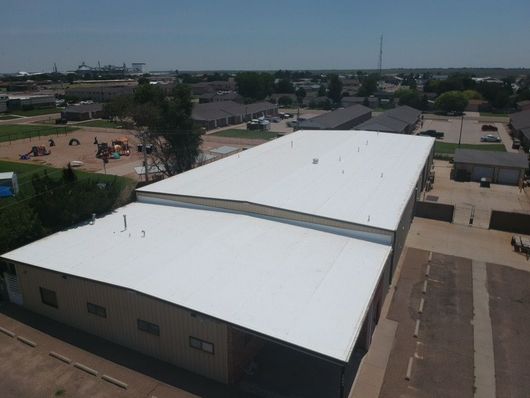For any commercial property, the roof is essential. It not only shields your building from the elements but can also help lower repair expenses and boost energy efficiency. In this guide, we’ll delve into the best commercial roofing materials and explain why investing in quality roofing is key to ensuring the success of your property.
Assessing Your Commercial Roofing Requirements
When it comes to commercial roofing, different factors influence your decision-making process. Climate, the structure of your building, and your business operations all impact the type of roofing you should choose. Understanding these requirements ensures you make the right choice for your business, whether it's a warehouse, office building, or retail store.
Top Commercial Roofing Materials
Several roofing materials are commonly used in commercial buildings. The best choice depends on your specific needs and budget. Each material offers distinct advantages, ensuring the right option for your business.
1. Metal Roofing
Metal roofs are a top choice for commercial buildings due to their durability and energy efficiency. Steel and aluminum are the most common materials used, offering resistance to harsh weather conditions and excellent leak prevention. The reflective nature of metal roofs helps keep buildings cooler, lowering energy bills.
Second Choice: Flat Roofs
Flat roofs are often found on commercial properties due to their cost-effectiveness and ease of installation. These roofs are ideal for buildings with modern architectural designs. Materials like TPO, EPDM, or PVC are commonly used for flat roofing systems, offering great waterproofing and insulation properties. Regular maintenance and proper drainage are key to extending the life of a flat roof.
Third Option: Shingle Roofing
Shingle roofing, though less common for large commercial buildings, is often used for smaller properties or those aiming for a more traditional appearance. Asphalt shingles are an economical option, easy to install, and come in a variety of designs, though they may not last as long as metal or flat roofing systems.
Roof Installation: Best Practices and Maintenance Tips
Once the roofing material is chosen, it’s time for installation. Hiring a qualified and licensed contractor guarantees proper installation, which is vital for preventing leaks and ensuring your roof’s longevity.
Ongoing maintenance is critical to keeping your roof in top shape. Regular inspections—especially after severe weather—are recommended. Check for any damage like missing shingles, cracks, or water pooling. Clean gutters and remove debris regularly to prevent potential long-term issues.

Why Investing in Quality Roofing Protects Your Business
Your roof is a long-term investment. A quality roofing system provides protection against leaks, which could cause expensive damage to your building and inventory. It also enhances energy efficiency, making your property more environmentally friendly and reducing operating costs. Ultimately, a well-maintained roof can improve your building's value and ensure that you’re not facing costly repairs down the road.
Conclusion: How to Choose the Right Roofer for Your Commercial Property
Finding the right roofing contractor is key to the success of your project. Seek out a licensed, experienced roofer who understands the unique requirements of commercial properties and can provide expert advice. The right contractor will also assist with installation and maintenance, ensuring the longevity of your roof.
Thinking about upgrading your commercial roof? Get in touch with us today for a free consultation, and let us guide you through the best roofing options for your property.
#CommercialRoofing #RoofingMaterials #BusinessProtection #MetalRoofing #FlatRoofing #RoofInstallation #EnergyEfficiency #RoofMaintenance